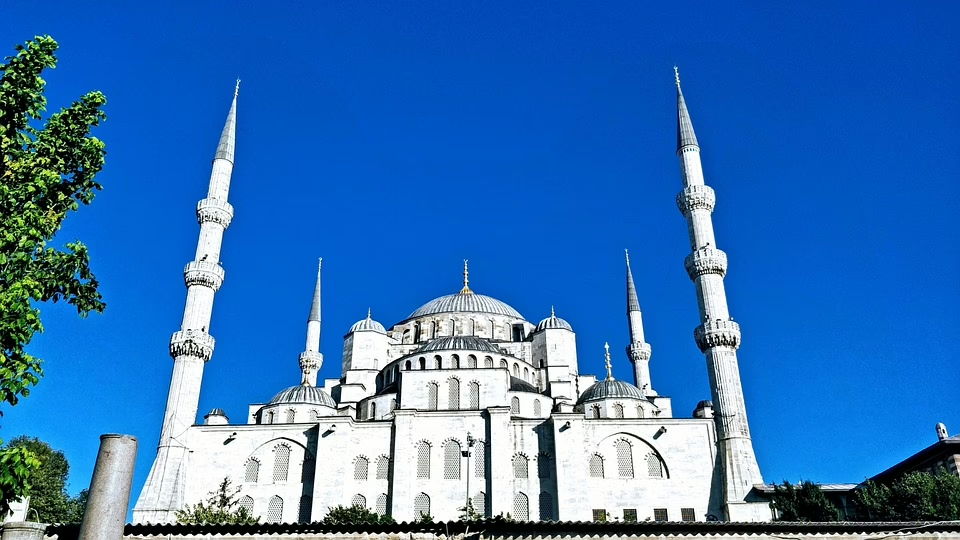A Divided Land: Ethnic Tensions and the Kosovo War
Introduction
The Kosovo War, fought from 1998 to 1999, represents a significant chapter in the post-Cold War period marked by ethnic tensions and nationalistic fervor in the Balkans. This article delves into the complex web of ethnic identities in Kosovo, the historical background leading to the war, the primary events during the conflict, and the aftermath that continues to affect the region today.
Understanding the Kosovo crisis requires a comprehensive examination of the historical grievances, socio-political dynamics, and international intervention that shaped the conflict.
Historical Background
Ottoman Legacy and Ethnic Identity
The roots of ethnic tensions in Kosovo can be traced back to the Ottoman Empire’s rule, which lasted for over four centuries. During this period, diverse ethnic groups coexisted, although the socio-religious hierarchy often marginalized the Christian Serbs in favor of Muslim Albanians. The decline of the Ottoman Empire in the 19th century sparked nationalistic movements, particularly among Serbs who viewed Kosovo as their historical and cultural cradle.
The Balkan Wars
The Balkan Wars (1912-1913) marked a critical turning point, as Balkan states sought to expel Ottoman influence. Kosovo was largely populated by Albanians but came under Serbian control, sowing the seeds for future conflicts as the demographics started to shift. Following World War I, the newly formed Kingdom of Serbs, Croats, and Slovenes integrated Kosovo fully, leading to institutional neglect of the Albanian community.
World War II and its Aftermath
The interwar period saw further ethnic tensions exacerbated by the rise of nationalist sentiments among both Serbs and Albanians. During World War II, Kosovo was occupied by Axis powers, and post-war Yugoslavia under Josip Broz Tito aimed to manage ethnic diversity through a federal structure. However, the political suppression of nationalism laid the groundwork for future discontent.
The Rise of Nationalism
The fall of communism in the late 1980s unleashed long-suppressed ethnic grievances. Slobodan Milošević’s rise to power in Serbia was marked by a campaign that espoused Serbian nationalism, further alienating Kosovo Albanians who felt threatened by oppressive policies aimed at enforcing Serbian control.
The Lead-up to War
Escalating Tensions
By the late 1990s, ethnic tensions in Kosovo had dramatically escalated, as the landscape of post-Yugoslav politics became increasingly polarized. The Kosovo Liberation Army (KLA) emerged as a response to systemic discrimination against Albanians and an effort to assert their rights and autonomy. Armed clashes erupted between the KLA and Serbian security forces as the Albanian population sought independence.
Failed Negotiations
Diplomatic efforts to resolve the conflict through negotiations, including the Rambouillet Accords, failed to bring a peaceful resolution. Serbia’s refusal to grant autonomy to Kosovo and the West’s insistence on a unilateral approach exacerbated the situation.
The Kosovo War
Outbreak of War
The Kosovo War officially began in February 1998, with widespread violence erupting between Serbian forces and KLA insurgents. Reports of human rights violations, including mass killings and ethnic cleansing, began to emerge, drawing international attention and condemnation.
NATO Intervention
In March 1999, after failed diplomatic attempts, NATO launched Operation Allied Force—a controversial air campaign against Serbia. While justified on humanitarian grounds, the intervention raised legal and ethical debates about sovereignty and the principle of humanitarian intervention.
Humanitarian Crisis
The war led to a catastrophic humanitarian crisis, with over one million Kosovars displaced and widespread atrocities reported. The conflict saw the systematic targeting of ethnic Albanians, resulting in significant loss of life and a legacy of trauma that continues to haunt Kosovo’s population.
Aftermath of the War
Establishment of UN Administration
Following the war, Kosovo was placed under United Nations administration, with the goal of fostering peace and rebuilding the war-torn territory. However, the power dynamics shifted as Kosovo declared independence in 2008, leading to complex relationships with Serbia and the international community.
Continued Ethnic Tensions
Despite efforts at reconciliation, ethnic tensions remain pervasive in Kosovo. The division between Serbs and Albanians is still palpable, with incidents of violence and discrimination occurring. The legacy of the war continues to overshadow the hopes for a unified and stable Kosovo.
International Recognition
While over 100 countries have recognized Kosovo’s independence, Serbia remains steadfast in its claim to the territory, bolstered by support from allies like Russia and China. This ongoing contestation complicates Kosovo’s path towards full international legitimacy and integration into global institutions.
Conclusion
The Kosovo War exemplifies the complexities of ethnic conflicts and the consequences of nationalist movements in multi-ethnic societies. As Kosovo continues to navigate its post-war landscape, the need for dialogue, reconciliation, and understanding of its diverse communities remains critical for achieving lasting peace.
Notes
- [Modern Footnote Source: International Crisis Group]
- [Modern Footnote Source: Human Rights Watch]
- [Modern Footnote Source: United Nations Security Council Reports]
- [Modern Footnote Source: Balkan Insight]
Further Reading
- The Kosovo Conflict: A Model for Understanding Ethnic Violence.
- Decoding the Legacy of the Kosovo War: Ethnic Relations in Post-War Settings.
- Kosovo: A Short History by L. Engelhardt.
In exploring these dynamics, it is imperative to foster an inclusive narrative that acknowledges the multifaceted histories and identities of all communities in Kosovo.
This article serves as a foundational exploration of the Kosovo War and its aftermath, illustrating that while conflicts may conclude, their effects often resonate for generations into the future.


























Add Comment